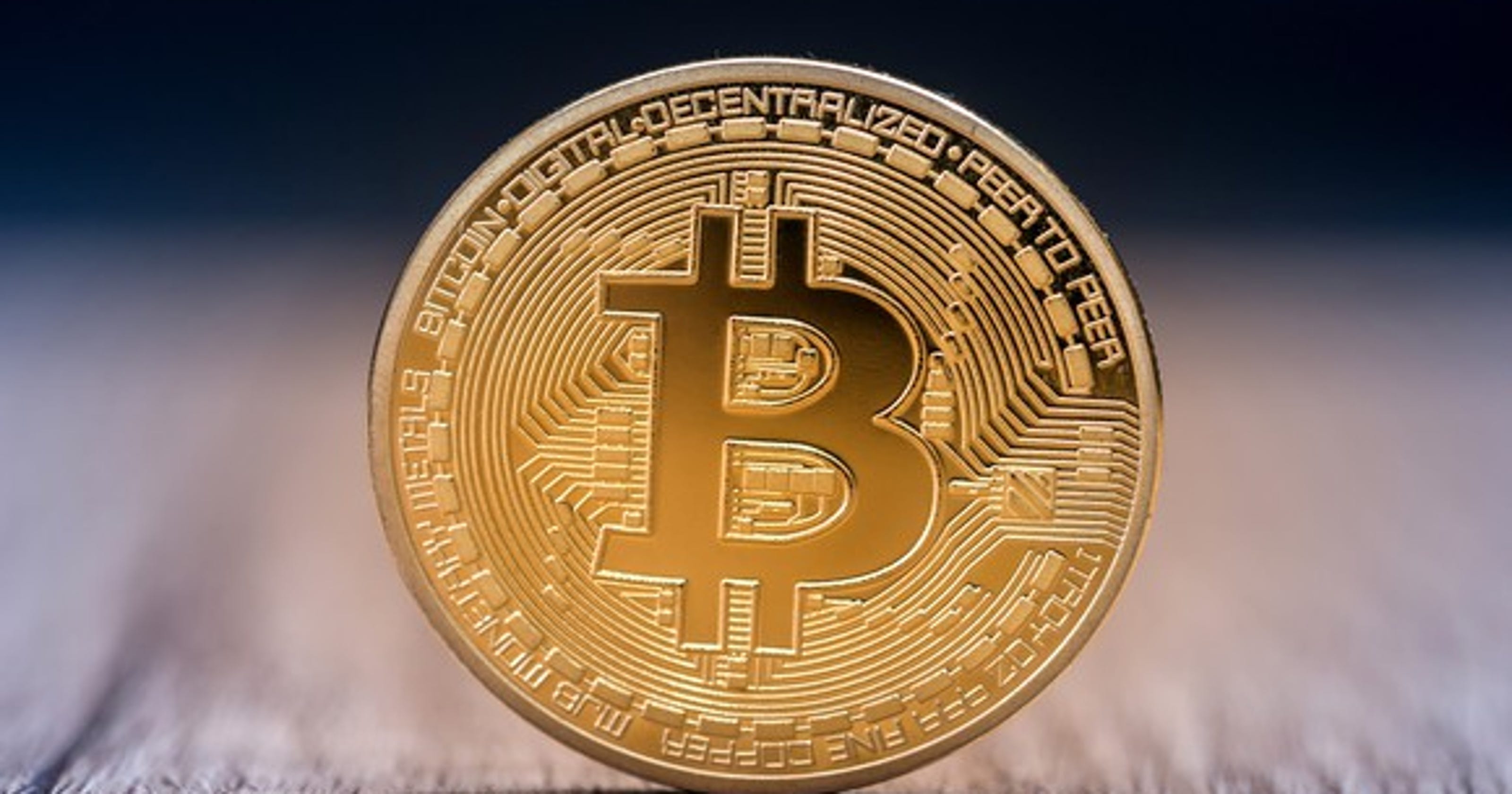Bitcoin: Digital Gold And Future Of Finance
Bitcoin: Digital Gold And Future Of Finance has made headlines around the world in recent years as a new and innovative form of digital currency. But what exactly is it, and what makes it so important?
Editor's Notes: Bitcoin: Digital Gold And Future Of Finance have published today date. We know that Bitcoin is a complex topic, and there is a lot of information out there to consume. That's why our team has done the hard work for you. We've analyzed the data, dug through the information, and put together this Bitcoin: Digital Gold And Future Of Finance guide to help you make the right decision.
Bitcoin is a decentralized digital currency that is created and held electronically. It is not subject to government or financial institution control, and transactions are verified and recorded on a public blockchain.
Key differences or Key takeaways:
| Bitcoin | Traditional Currency |
|---|---|
| Decentralized | Centralized |
| Not subject to government or financial institution control | Subject to government and financial institution control |
| Transactions are verified and recorded on a public blockchain | Transactions are verified and recorded by a central authority |
One of the key benefits of Bitcoin is that it is a secure and transparent way to make transactions. All transactions are recorded on the blockchain, which is a public ledger that is accessible to anyone. This makes it difficult for people to counterfeit or double-spend Bitcoin.
Another benefit of Bitcoin is that it is a global currency. It can be sent and received anywhere in the world, without the need for a bank or other intermediary. This makes it a convenient and cost-effective way to send money to friends and family, or to make purchases online.
Bitcoin is still a relatively new currency, and its value is volatile. However, it has the potential to revolutionize the way we think about money and finance. It is a secure, transparent, and global currency that has the potential to make the world a more efficient and equitable place.
FAQ
This section answers frequently asked questions regarding Bitcoin and its potential impact on the financial landscape. Bitcoin: Digital Gold And Future Of Finance
Question 1: What is Bitcoin and how does it work?
Bitcoin is a decentralized digital currency that utilizes blockchain technology to facilitate secure and transparent transactions without the need for intermediaries.
Question 2: Is Bitcoin a safe investment?
While Bitcoin's value can fluctuate, it has gained recognition as a valuable asset class due to its decentralized nature, limited supply, and increasing adoption.
Question 3: How can Bitcoin be used?
Bitcoin serves as a medium of exchange for goods and services, a store of value, and a potential hedge against inflation.
Question 4: What are the advantages of using Bitcoin?
Bitcoin offers several advantages, including low transaction fees, fast and global transfers, and enhanced privacy.
Question 5: What are the potential risks associated with Bitcoin?
Investing in Bitcoin carries risks such as price volatility, security breaches, and regulatory uncertainty.
Question 6: What is the future of Bitcoin?
Experts believe that Bitcoin has the potential to revolutionize the financial industry and become a widely accepted form of currency.

Bitcoin loses third of its value this month after 400% run-up in 2017 - Source www.usatoday.com
In conclusion, Bitcoin presents both opportunities and challenges in the financial market. By addressing these FAQs, individuals can gain a clearer understanding of Bitcoin and make informed decisions regarding its potential role in their investment portfolios.
To delve deeper into the topic of Bitcoin as digital gold and the future of finance, explore the comprehensive article Bitcoin: Digital Gold And Future Of Finance.
Tips
Bitcoin has gained significant traction as "Digital Gold" due to its limited supply and potential to hedge against inflation. Understanding the cryptocurrency's unique characteristics is crucial for investors seeking to leverage its benefits.
Tip 1: Store Bitcoin Securely
Choosing a reliable hardware wallet or reputable custodian is essential to protect Bitcoin from theft or loss. Secure storage ensures the safekeeping of assets and mitigates the risks associated with online exchanges.
Tip 2: Consider Bitcoin as a Long-Term Investment
Bitcoin's historical price action suggests it performs best as a long-term hold. Patience is key, as short-term market fluctuations are common. Investing with a long-term horizon allows Bitcoin to appreciate in value over time.
Tip 3: Diversify Bitcoin Holdings
While Bitcoin is considered a robust investment, it is prudent to diversify one's portfolio with other cryptocurrencies or traditional assets. Diversification reduces overall risk and enhances the stability of investment returns.
Tip 4: Understand the Crypto Market and Technology
Staying informed about the latest developments in the crypto market and blockchain technology is vital. Understanding the underlying fundamentals and technological advancements empowers investors to make informed decisions.
Tip 5: Seek Professional Advice if Needed
For complex investment strategies or advanced crypto-related queries, consulting with a qualified financial advisor is recommended. Seeking professional guidance ensures that investment decisions align with individual financial goals and risk tolerance.
By incorporating these tips into one's investment approach, individuals can harness the potential benefits of Bitcoin as Digital Gold while mitigating associated risks. Embracing a prudent and informed investment strategy is crucial for successful participation in the cryptocurrency market.
Bitcoin: Digital Gold And Future Of Finance
In the ever-evolving realm of finance, Bitcoin has emerged as a topic of immense significance, challenging traditional financial systems and captivating the attention of experts and enthusiasts alike.
- Decentralized Currency: Independent of central authorities, Bitcoin operates on a peer-to-peer network, empowering individuals with financial autonomy.
- Store of Value: Often touted as "Digital Gold," Bitcoin's finite supply and increasing adoption have made it a preferred asset for value preservation.
- Medium of Exchange: Despite initial skepticism, Bitcoin is increasingly accepted as a payment method, facilitating seamless and secure transactions.
- Global Accessibility: Transcending geographical boundaries, Bitcoin empowers individuals worldwide, particularly in regions with limited access to traditional financial infrastructure.
- Scarcity and Durability: Bitcoin's limited issuance and immutable nature contribute to its scarcity and durability, enhancing its value over time.
- Blockchain Technology: The underlying technology behind Bitcoin, blockchain, has revolutionized finance, introducing transparency, security, and efficiency in various industries.
These key aspects of Bitcoin highlight its transformative potential in the future of finance. As the industry continues to evolve, Bitcoin's impact on global economies, financial institutions, and individual wealth management strategies is likely to be profound.

Gold to Become More Like Bitcoin in Coming Decade as World Goes Digital - Source bitcoinist.com
Bitcoin: Digital Gold And Future Of Finance
Bitcoin, the decentralized digital currency, has emerged as a potential contender to gold's role as a store of value and medium of exchange. Its unique characteristics, including scarcity, divisibility, and portability, make it an attractive alternative to physical gold, which is cumbersome to store and transport. Moreover, Bitcoin's price has exhibited remarkable resilience during economic downturns, further bolstering its credentials as a safe haven asset.

Est-ce que Bitcoin Digital Gold? - Source blog.arcoptimizer.com
The rise of Bitcoin has significant implications for the future of finance. It challenges the traditional role of central banks and governments in controlling the money supply and monetary policy. The decentralized nature of Bitcoin empowers individuals to take charge of their finances, reducing reliance on intermediaries and promoting financial inclusion.
Furthermore, Bitcoin's underlying technology, blockchain, enables the development of innovative financial applications that promote efficiency, transparency, and security in financial transactions. Smart contracts, for example, automate the execution of agreements, reducing the need for intermediaries and legal disputes.
While Bitcoin's potential as digital gold and its disruptive impact on finance are undeniable, challenges remain. Volatility, regulatory uncertainty, and security concerns need to be addressed to ensure widespread adoption and mainstream acceptance. Nevertheless, Bitcoin's unique features and transformative potential position it as a formidable force in the future of finance, challenging the status quo and offering new possibilities for financial freedom and innovation.
Conclusion
As Bitcoin continues to evolve, its role as digital gold and its disruptive impact on finance are likely to intensify. The combination of its unique characteristics and the transformative power of blockchain technology positions Bitcoin as a key player in the future of finance. By challenging traditional financial structures and empowering individuals, Bitcoin has the potential to revolutionize the way we manage, store, and exchange value.
While challenges and uncertainties remain, the potential benefits of Bitcoin are undeniable. Embracing innovation, promoting regulatory clarity, and enhancing security measures will be crucial in harnessing the transformative power of Bitcoin. By doing so, we can unlock new possibilities for financial inclusion, efficiency, and transparency, ultimately shaping a more equitable and prosperous financial system.
Tidak ada komentar